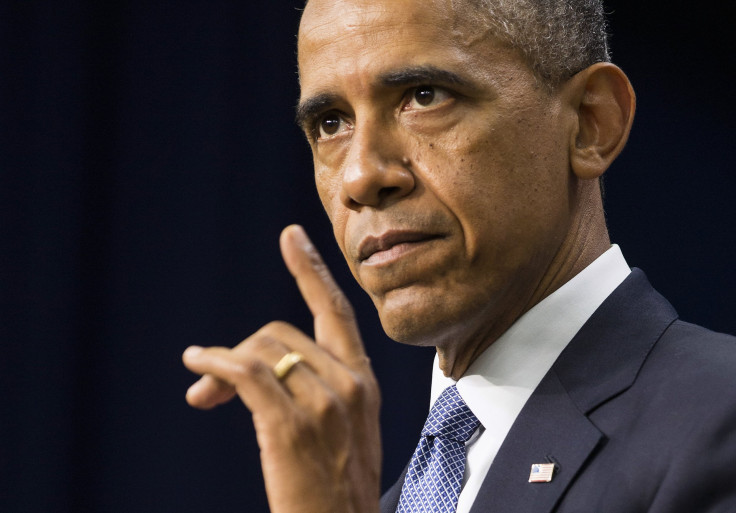Immigration Reform 2014: Why The Big TV Networks Won't Broadcast Obama Speech

Not one of the big four TV networks -- Fox, CBS, NBC and ABC -- will broadcast President Obama’s Thursday night speech announcing his overhaul of the nation's immigration policy. Administration officials reportedly asked and were rebuffed by the big four.
But the rejections were hardly a big loss for the White House because the two main Spanish-language networks, Univision and Telemundo, agreed to broadcast the speech, giving the president crucial access to an increasingly important constituency.
Still, the fact that the big four networks have taken a pass is not inconsequential: While cable television penetration has grown, there are still more than 200 million Americans without cable and more than 18 million who have a television but don’t subscribe to any pay television outlets, according to data from research firm SNL Kagan.
The major networks' decision not to broadcast Obama's speech also seems to fly in the face of precedent. In 2006, President George W. Bush's speech announcing his efforts on immigration was carried by all four networks.
So, why did the big networks say no thank you to the administration's off-the-record request?
“It seems to be a perfect storm of circumstances that have worked against the president here,” Joe Foote, dean of the University of Oklahoma’s journalism school, told International Business Times.
“We’re in sweeps month, the networks have big programs that they want to get on the air at their original time and you have a lame-duck president and the declining influence of these speeches. It’s very unfortunate the timing for President Obama, because it puts on a billboard that he’s a lame-duck president with low approval ratings and he can’t even leverage a tool of the White House that has always been effective.”
Airing a presidential speech without commercial interruption has rarely been popular in network boardrooms, and this is not the first time a president has been rebuffed when asking for prime-time access. Obama’s timing may have played a role in the networks’ decisions. The midseason finale of the ever-popular ABC drama “Grey’s Anatomy” is scheduled for 8 p.m. EST Thursday, as are finales for NBC’s “The Biggest Loser” and Fox’s “Bones.” CBS is airing a new episode of its hit “The Big Bang Theory” at the same time as well.
Taking aim at immigration also may not have helped matters. Politico reports that because the speech is seen as largely political rather than informative, networks felt comfortable running scheduled programming instead of the presidential address.
“There was agreement among the broadcast networks that this was overtly political,” an insider told the publication. “The White House has tried to make a comparison to a time that all the networks carried President Bush in prime time, also related to immigration. But that was a bipartisan announcement, and this is an overtly political move by the White House.”
From a commercial point of view it makes sense not to carry Obama’s announcement. Presidential speeches have declined in viewership for every president since Richard Nixon held office. Nixon was watched by 59 percent of households during a routine press conference in 1969, while Obama drew only 41 percent of households for his State of the Union address in 2010 -- and saw an 11 percent drop the following year. Obama’s most recent State of the Union address, in January, garnered the lowest rating of his presidency with 33.3 million viewers and a 21.8 household rating.
“In one sense, this is an economic concern at networks outweighing the political concerns,” Paul Gluck, an associate professor of media studies at Temple University and former television news director in Philadelphia, told IBTimes. “Thursday is an incredibly important night for networks. Some of the most popular and watched shows on television air on Thursday night. Often, no matter what their political stripe, a viewer is more dedicated to its shows than to its party.”
But Foote, who wrote “Television Access and Political Power” in 1990, said he sees the decision as a sign that networks are shrugging off their public duty.
“During the '60s and '70s, [networks] touted their public service ability. Now it seems to be more about money than public service,” Foote said. “There have been moves in this direction lately by networks ... but this seems to be the first time that it’s just blatantly come to a showdown. ... Just symbolically, this doesn’t look good.”
© Copyright IBTimes 2024. All rights reserved.






















